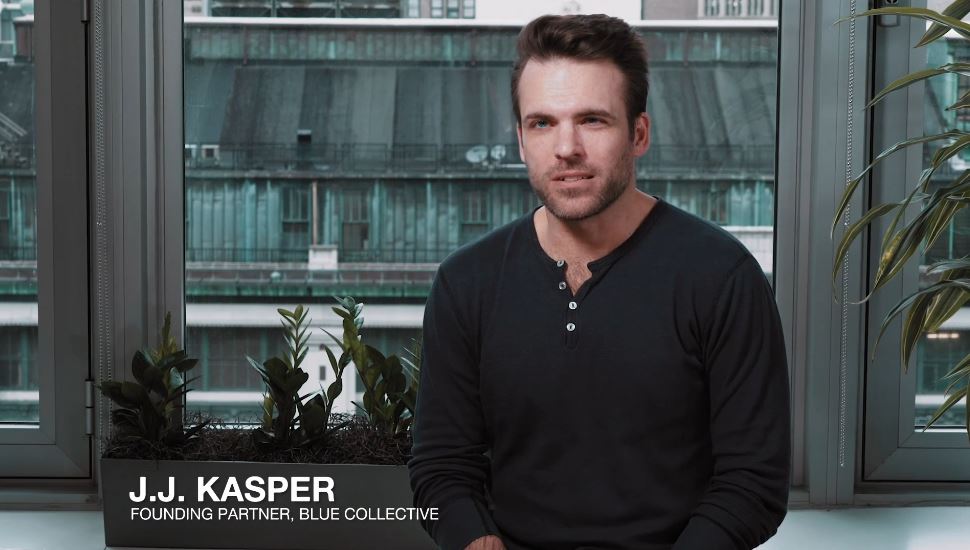Convertible Note Agreement Template
Most companies have investors who offer money that serves as the capital for the business to operate. Well-established businesses with a track record of success often have investors who seek out investment opportunities through stock sales. Younger business owners often ask for financial help from friends or family to get started. How can younger start-up companies entice investors with just a business idea and trust that it will work out?
What Is a Convertible Note Agreement Template?
Entrepreneurs have ideas. You may even have a well-thought-out plan for how to run your business. The only thing holding you back is a lack of funds to get your operations started.
Investors want to see a business’s value and potential based on past performance. While you may have a small operation established, there’s likely a gap between where you are now and where you need to be to turn a true profit. Convertible notes help you fill that gap and engage investors in the earliest stages of your business.
Understanding Convertible Notes
A convertible note is an investment tool that investors consider debt-equity. This means that investors loan money to a business owner with the intention that the loan is paid back in business equity.
Instead of making payments on the loan in cash, you issue stock shares to your investor based on the initial convertible note agreement terms. Interest accrues on the loan amount similar to how it would on a traditional loan. On the convertible note’s maturity date, you pay the loan in full with accumulated interest factored in.
Convertible notes are primarily used by business start-ups that cannot get financing another way. After your business has enough track record of providing a valuation, you can bolster your finances through traditional stock sales. Convertible notes provide a foundation for getting to that stage of business. Investors willing to utilize a convertible note agreement are very valuable partners for start-up companies.
Convertible Note Benefits
There are pros and cons to everything. When it comes to convertible note agreements, there are many benefits, including:
- Convertible notes help you connect with investors who otherwise would not be interested in your business.
- Unique terms are available to these early investors that allow them to earn more on their investment.
- Your company’s valuation isn’t essential at this funding stage, so you don’t have to worry if you don’t have one yet.
- Scale your operations quickly with early funding so you can begin making a profit sooner.
- Convertible notes are more efficient because they require less legal documentation.
- They are also more economical for your time than more traditional funding options.
Convertible Note Agreement Terms
While there is no one-size-fits-all solution for convertible note agreements, our template provides you with a customizable foundation. All convertible note templates have four standard terms:
- Interest rate
- Conversion rate
- Valuation cap
- Maturity date
These terms ensure that the business deal is fair for both the investor and the business owner. Once signed, the document is legally binding. Neither party can change the terms unless both are in agreement and make the changes in writing as an amendment to the original agreement.
Keep in mind that the specific legal details vary from state to state based on the governing laws. You may want to seek legal counsel from a professional to ask questions about how to word your agreement so it aligns with your state laws and is enforceable for both parties.
While the investor wants to make a decent return on their investment, you don’t want to overpay. Negotiating terms may take time so that both parties are satisfied with the outcome.
For example, you may consider a baseline return for your investor with tiers of stock payouts that change as your company’s valuation does. This ensures that you are paying back the investment at a level equal to the profit you bring in.
Of course, you want the terms to appeal to your investor so that they feel confident investing in your business idea at this stage. The cost of establishing a business is steep, and investors are taking a risk alongside you. But the higher an investor’s equity conversion rate is, the more it dilutes your business valuation.
Interest Rate
Because you use convertible note agreements to document debt, there has to be an interest rate equivalent. Your investor wants to see a profit on their investment. There is no rule or guideline for what an investment rate needs to be, so that is up to your and your investor to negotiate.
Conversion Discount
It is important for you to understand that early investors are taking a significant financial risk by investing in your business. This term in the agreement allows the investors to buy additional shares of your company’s stock at a lower price at later valuation dates. This discount is a reward exclusive to early investors and should not be offered to late-stage investors.
Valuation Cap
This term in the agreement protects you and your business. You want your business to be wildly successful, and hopefully, it will be. You ensure that you aren’t paying the investor more for a lesser investment by placing a valuation cap.
It essentially places a limit on how much profit your investor can make on their investment with your business. If your business valuates for more than anticipated on the maturity date, you only have to pay the investor back up to the valuation cap outlined in your agreement.
Maturity Cap
The maturity cap is your deadline for the preferred investment round. This date is also your deadline for paying back your earliest investors with equity in your business. You don’t want to disappoint your investors or break the terms of your agreement by missing this date.
Sample Template
While they are beneficial, convertible notes are not without risks. You can have the best idea and the best plan, but actual success is unpredictable. Things outside of your control can impact your operations. In fact, the majority of start-up businesses fail in their first year.
Convertible notes offer some safety for both parties. The investor is guaranteed a particular interest rate, and the business owner doesn’t risk a word-of-mouth agreement that doesn’t go as expected.
Alternatives to a Convertible Note Agreement
KISS and SAFE are acronyms for two convertible note alternatives. These are also debt-equity documents, although they each work a little differently than a convertible note. Aspiring business owners often turn to these alternatives because they are simple and cost-efficient. These are similar to a convertible note because all three documents serve as templates with standard information already outlined.
KISS
Accelerator 500 Start-ups developed Keep It Simple Security. Although it still has an equity cap and discount offer, KISS differs from a convertible note because it has no interest rate on equity and no repayment terms. The debt does accrue interest, which is payable on the maturity date.
During the equity funding round, the investment converts to common stock at the cap or gets returned as a multiple of the initial investment amount based on the terms. If the company sells, the investor retains rights to financial statement access and participation in future equity rounds. All KISS documents from a single investment round have the exact same rights.
SAFE
Startup Accelerator Y-Combinator established SAFE, which stands for Simple Agreement for Future Equity. SAFE documents offer a combination of term options:
- Cap with no discount
- Discount with no cap
- Both a cap and a discount
- No cap or discount
SAFE documents may also contain a unique clause called Most Favored Nation (MFN). This permits an early investor to switch to more favorable terms that a later investor may receive. All equity rounds entitle the investor to convert their investment into preferred stock at a price that is less than the valuation cap or discount.
Upon the sale of the company, the investment converts to common stock or may be paid back in the original investment amount. Investors retain rights to participate following the next round of funding. They also enjoy higher resolution financing that is exclusive to early investors.
Track Convertible Notes With Diligent Equity
As an entrepreneur, you have a lot on your to-do list. Creating a convertible note agreement from scratch doesn’t have to be one of them. Diligent Equity empowers you to issue and manage your company’s shares in our platform, including debt-equity documents like convertible note agreements.
Using the Diligent Equity convertible note template, you can complete all three steps quickly and efficiently. First, create an account and company profile for free. From the homepage, you can navigate on the left hand bar to “notes” to add your convertible note and understand its impact on your cap table.
From here, you can customize the convertible note to your personal needs. Editable fields include:
- Instrument holder: This is where you list the name of the investor. If you have multiple investors, issue each person their own customized convertible note template, even if the terms are the same.
- Convertible note name: It is smart to use a naming convention for your documents so that it is easy to identify each investor’s agreement.
- Issue date: This is the date of the signed agreement. You can date it initially and change it later if you go through changes to the terms with your investor before signing.
- Note type: Identify your document as a convertible note, SAFE or KISS
- Principle: This is the original amount of the loan provided by your investor.
- Interest rate:A percentage of the investor’s original gift amount that you guarantee to pay back to your investor on top of the principle. This is what the investor earns on their investment in your business.
- Maturity date: This is the date you agree to pay the terms of the agreement in full.
- Accrual frequency: How often does the interest percentage accrue over the course of the agreement? Is it a flat percentage rate on the total? Does it accrue weekly, monthly, quarterly, or annually?
- Converts to: Outline the specific type of stock you use to pay your investor back at the maturity date.
- Conversion trigger amount – This is a minimum amount that triggers a conversion to stock equity in your company.
- Valuation cap: This is the maximum amount for your company’s valuation. This limit is set to protect you from overpaying investors when you convert the agreement to shares of stock.
- Early exit multiple: This is a guaranteed multiple of the principle investment that your investor can expect to receive back as payment.
- Conversion discount: The discount you agree to offer on future share purchases once your company is valuated.
The last step is to review and finalize your document. Once you save it to your profile, you can download and share it with your investors. Before you begin creating your convertible note agreement, you should talk to your investor and get an idea of what their expectations are.
This helps you make a lucrative offer that entices investors to partner with you in kick-starting your business. You can always return to the Diligent Equity platform and edit the document to adjust the terms until you reach a mutually beneficial compromise with your investor.
Conclusion
Diligent Equity’s goal is to make convertible notes easy for you to issue and manage. Once documents are properly executed, you can manage them all in one place. See how much money you’ve accepted from investors and the big picture of what your responsibilities are for returning those investments down the line as stock shares.
The Diligent Equity convertible note solution is an all-access resource for entrepreneurs. All your equity-related information resides under a single umbrella, streamlining your approach to accepting early investments.
Establishing investor relationships has never been easier. Start saving time and effort today so you can offer more of your attention to other essential business responsibilities. Contact us now with any questions you have or get started here.



